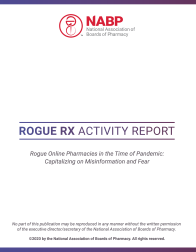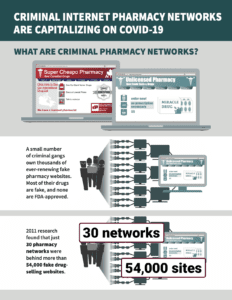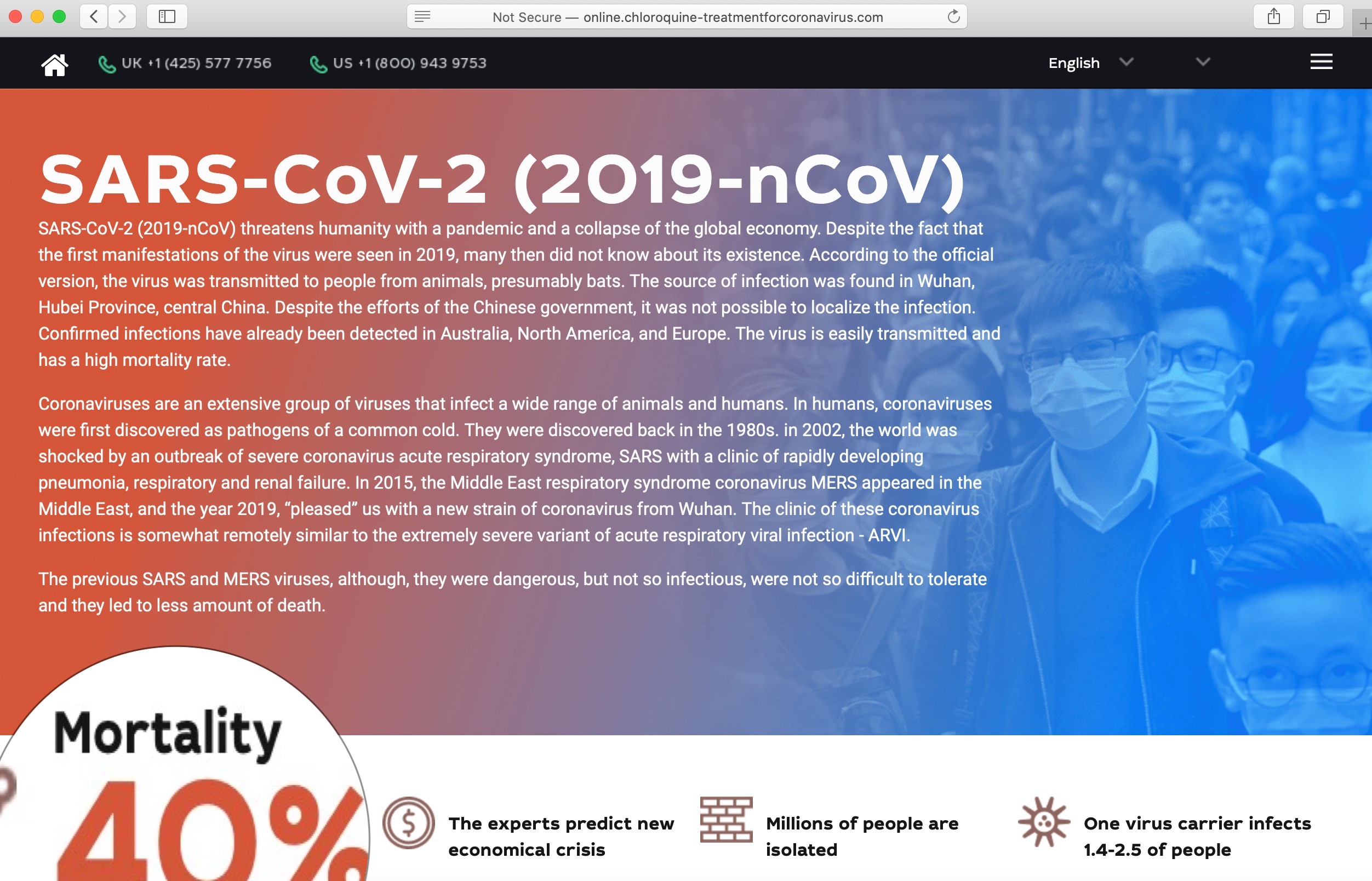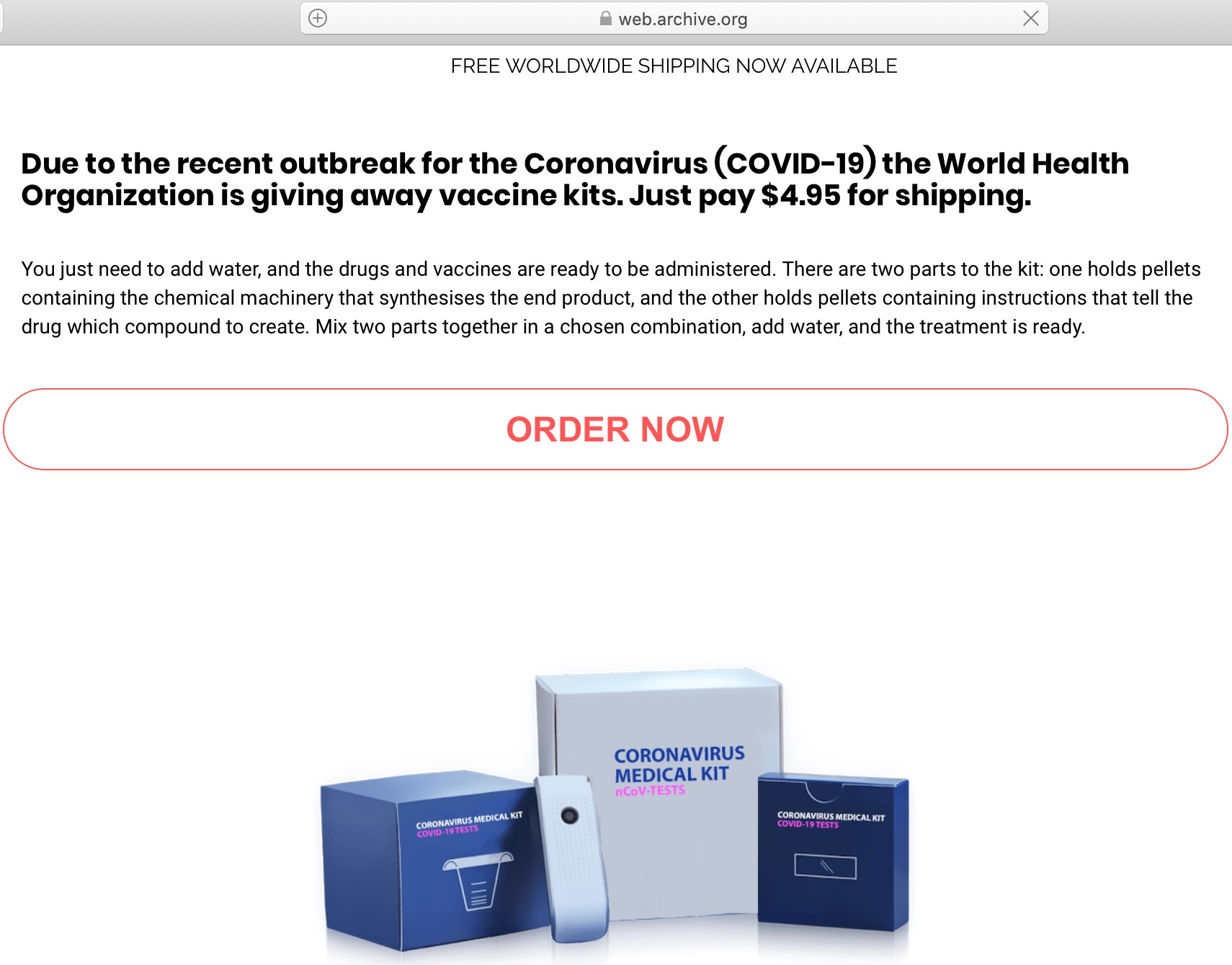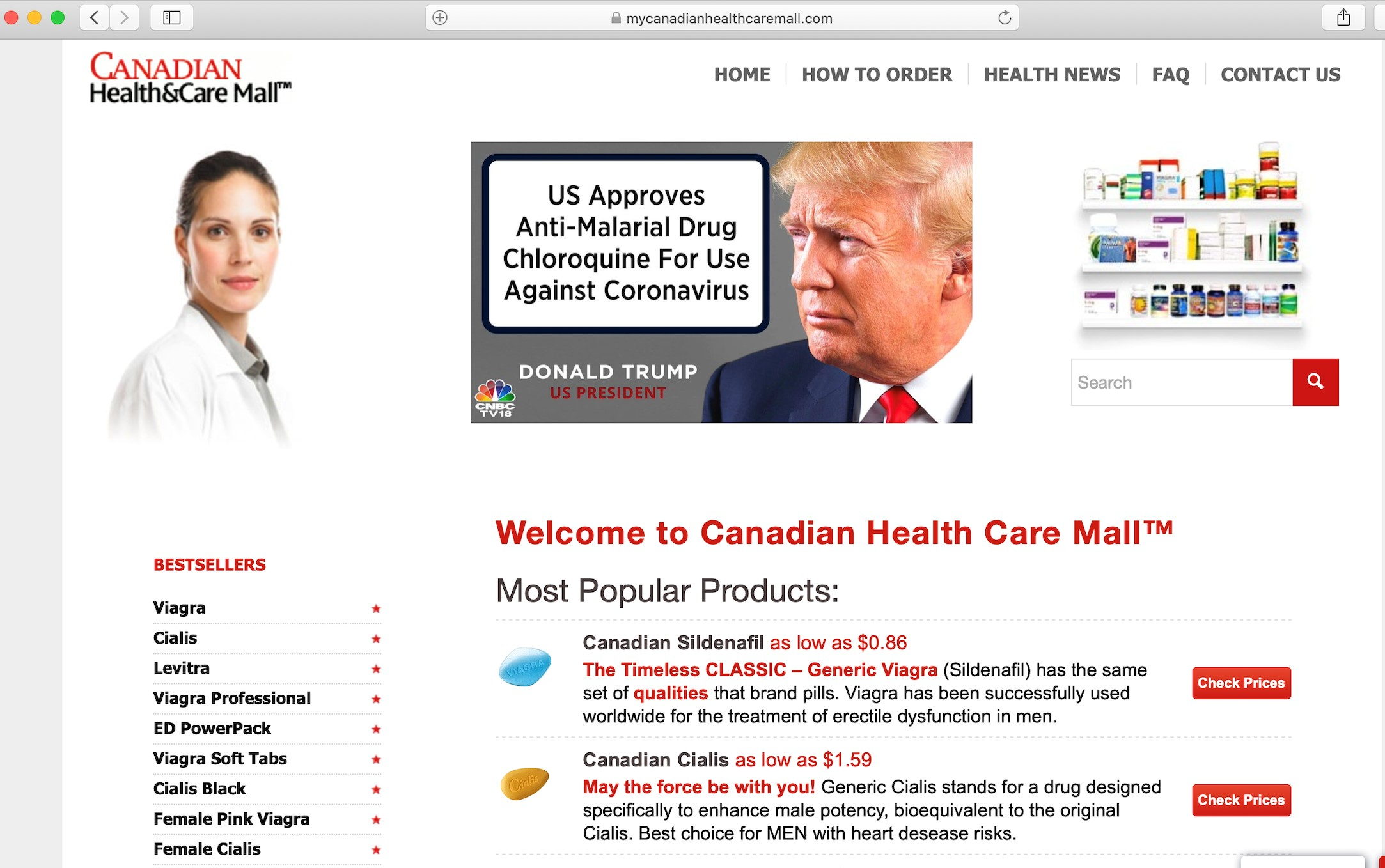June 10, 2020 #covidscams video: Fake Online Pharmacies Pivot to COVID-19, says the NABP
In May, the National Association of Boards of Pharmacy (NABP) released Rogue Online Pharmacies in the Time of Pandemic: Capitalizing on Misinformation and Fear. The NABP represents boards of pharmacy in all 50 U.S. states, U.S. territories and all 10 Canadian provinces, and collectively develops safe pharmacy practices to protect the public health. Internet drug outlets that violate safe pharmacy practices have been a focus of their research since 2008. Last month’s report focuses on how established fake pharmacy networks have pivoted to cash in on the coronavirus.
About fake pharmacy networks
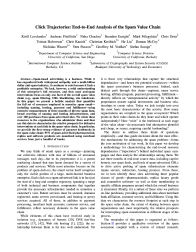
Read "Click Trajectories: End-to-End Analysis of the Spam Value Chain" to learn more about affiliate networks.
Fake online pharmacies have been big business since the early 2000s, when unregulated websites (”rogue online pharmacies”) began selling patients medicines, often without prescriptions. In 2011, researchers found that more than 54,000 fake drug-selling websites were being run by just 30 criminal networks. These networks offered website templates and shipping and payment services to “affiliates” who drove user traffic to fake online pharmacies in return for a small payment. Even today, most drug-selling websites are fronts for large global networks that run hundreds, or even thousands, of similar sites to sell unapproved drugs for huge profits.
Sometimes these drug sales have dire results. In 2004, for example, Illinois resident Craig Schmidt spent three weeks in a coma and suffered permanent damage to his health after the Xanax he ordered online contained four times the expected dose. Two years later, Marcia Bergeron, a U.S. citizen living in Canada, died because the drugs she ordered from a legitimate-looking website were contaminated with heavy metals.
Regulators have been trying to protect U.S. patients from these criminal networks for years, but the Internet is vast, and new rogue pharmacies spring up faster than they can be taken down.

Ryan Haight died after he took Vicodin he'd purchased online from a rogue pharmacy. (Source: justthinktwice.gov)
In 2008, Congress passed the Ryan Haight Online Pharmacy Consumer Protection Act, which was named for an 18-year-old who died in 2001 after taking Vicodin he’d ordered from a fake online pharmacy. The act required face-to-face medical exams before dispensing prescriptions and accurate addresses and pharmacists’ licenses on pharmacy websites. It outlawed advertising the illegal sale of controlled substances online and made reforms around prosecution and penalties.
The Haight Act made it easier for those “in the know” to identify illegitimate pharmacies, but it did little to protect people searching for medicine online.
In 2011, Google agreed to forfeit $500 million for allowing online Canadian pharmacies selling unregulated medicines to buy advertising that targeted U.S. consumers. Google had been trying to make it more difficult for rogue pharmacies to buy Google advertising since 2009, when it became aware that the Department of Justice was investigating the problem, but the company’s legal counsel told reporters it was “an ongoing, escalating cat-and-mouse game.”
That same year, security expert Brian Krebs published information about a Russia-based pharmacy network that made it clearer who Google was playing cat-and-mouse with. GlavMed and its sister company Spamit made $50 million in a single year by hijacking people’s computers with malware. The malware used individual computers to send pharmacy spam email to drive traffic to their fake pharmacy websites.
Have we solved the “Cat-and-Mouse game”? No. It’s still happening.
In 2017, the FDA warned GlavMed to stop selling unapproved drugs, one of which had been pulled from the U.S. market because of potentially life-threatening side effects.
In 2018, Quantum Solutions, a company registered in Barbados and operated from Canada, agreed to pay more than $4.3 million in fines and forfeitures for selling U.S. pharmacies illegally imported drugs and to relinquish claims to 241 websites that the company had used to make sales. One of those websites was CanadaDrugsCenter.com, which sold then-president of Maine’s Pharmacy Association Kenneth McCall sub-potent and contaminated medicine in 2014. The NABP estimated that nearly 95% of online pharmacy websites are not operating in compliance with federal and state pharmacy laws.
COVID-19
In Rogue Online Pharmacies in the Time of Pandemic, the NABP reports that known criminal networks are illegally offering unproven, prescription-only, and sometimes harmful treatments for COVID-19. Some networks, like Rx-Partners, which lost 67 domains to a Homeland Security seizure in 2016, have rolled out entirely new templates (identifiable because they are all the same format, and have the same contact information). Others have added COVID-19 related images to their existing cookie-cutter website templates.
Other fake websites have cashed in on COVID-19-related URLs to sell medical products that don’t exist. Coronavirusmedicalkit.com, for example, claimed to sell WHO-approved COVID-19 vaccines for a $4.95 shipping charge. There is no vaccine for COVID-19. Legal documents suggest the site’s real purpose was harvesting credit card information.
Domain Name Sellers
Many of these fraudulent sites register their URLs with a handful of domain name sellers who are “safe havens” for criminal activities. More than 50% of the active websites NABP found registered their domain names with Hosting Concepts (doing business as OpenProvider)—a company that is on the United States Trade Representatives’ “Notorious Markets List” because it has refused to lock or suspend domain names registered to illegal online pharmacies.
Moreover, 90% of the COVID-related domain names NABP found anonymized their domain name registration, which makes it very hard for law enforcement to locate and stop COVID fraudsters.
Join PSM in Supporting Domain Name Reform
All of this is why The Partnership for Safe Medicines is asking Congress for domain name reforms. On May 8, 2020, PSM wrote Congressional leaders in the House and Senate asking that they require domain name sellers to suspend and lock websites that facilitate COVID-19 and other health fraud, and re-open registration information so that law enforcement can pursue criminals using websites to take advantage of the public.
You can learn more about this subject by watching our May 6th 2020 video, and send a letter to your representatives using the form on the right..
Sources for this week’s video and post:
- Rogue Online Pharmacies in the Time of Pandemic: Capitalizing on Misinformation and Fear, NABP, May 2020.
- Newsletter, NABP, June/July 2008
- John Henkel, “Buying Drugs Online: It's Convenient and Private, but Beware of 'Rogue Sites'” FDA Consumer, June 2000.
- Kirill Levchenko, “Click Trajectories: End-to-End Analysis of the Spam Value Chain,” 2011 IEEE Symposium on Security and Privacy, May 2011.
- Keith Epstein, “Online Extra: The Deadly Side Effects of Net Pharmacies,” Bloomberg Businessweek December 18, 2006.
- H.R. 6353 (110th): Ryan Haight Online Pharmacy Consumer Protection Act of 2008, Congress.gov.
- Corey McKenna, “Ryan Haight Act Will Require Tighter Restrictions on Internet Pharmacies,” Government Technology,” October 2, 2008.
- “Google Forfeits $500 Million Generated by Online Ads & Prescription Drug Sales by Canadian Online Pharmacies,” U.S. Department of Justice, August 24, 2011.
- Claire Cain Miller, “Google Reaches $500 Million Settlement With Government,” New York Times Bits Blog, August 24, 2011.
- “SpamIt and Glavmed Pharmacy Spam Campaigns Generate $50m a Year,” InfoSecurity Magazine, February 25, 2011.
- “SpamIt, Glavmed Pharmacy Networks Exposed,” Krebs on Security, February 24, 2011.
- “Spam Volumes Dip After Spamit.com Closure,” Krebs on Security, October 4, 2010.
- “Three Canadians and their Company Sentenced for Wholesale Distribution of Misbranded Prescription Drugs and Money Laundering,” U.S, Department of Justice, July 31, 2018.
- Judgment in a Criminal Case, U.S. District Court, Western District of Pennsylvania, Case 2: 17-cr-00089-CB.
- Internet Drug Outlet Identification Program: Progress Report for State and Federal Regulators, National Association of Boards of Pharmacy, September 2018.
- Complaint for Temporary Restraining Order, U.S. District Court, Western District of Texas, Case A-20-CV-306.
- 2018 Out-of-Cycle Review of Notorious Markets, Office of the US Trade Representative.
There are many more scams we can’t fit into our weekly episode. Follow us on Facebook, Twitter or Linkedin to get them. Read all our COVID-19 coverage.
Tell Congress to kick COVID-19 scammers off the Internet!
Watch our May 6, 2020 #COVIDscams episode to learn why.
Adopt our Covid Safety campaign!
Post our one pager to your website and to social media. Use the hashtag #covidscams to help raise awareness of criminals using the crisis to prey on people. Drop us a note at editors@safemedicines.org to let us know you're helping!
